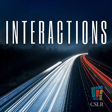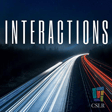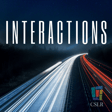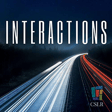Changing the Narrative for Racial Justice
00:00:09
Speaker
We cannot expect the next generation to be any better than our generation at enacting racial justice if we don't begin to change the narrative and the story that we tell them. And that's a long project.
00:00:27
Speaker
And so the faith community, if you will, must be intentionally engaged in the work of changing the story
Introducing the Hosts and Podcast Focus
00:00:41
Speaker
Welcome to Interactions, a podcast exploring how law and religion interact in today's world and throughout history. In this season of Interactions, Terry Montague and I, Brandon Paradise, engage with contemporary leaders and social change agents regarding the influence and convergence of Christianity, the law, and racial justice in their work.
00:01:01
Speaker
This podcast is produced by the Center for the Study of Law and Religion at Emory University in collaboration with CanopyForum.org.
Reverend Dr. Kelly Brown Douglas and Her Work
00:01:10
Speaker
Today is the first of two episodes with the Reverend Dr. Kelly Brown Douglas. Dr. Douglas is the canon theologian at the National Cathedral in Washington, D.C. She has also served as the dean of Episcopal Divinity School at Union Theological Seminary and is currently the president of Episcopal Divinity School.
00:01:28
Speaker
Dr. Douglas is a leading scholar of womanist theology, social justice, sexuality, and the black church, as well as racial reconciliation. In this episode, we talk with Dr. Douglas about the role of social memory and the moral imaginary in creating and perpetuating the current system of social injustice, as well as their potential for changing it.
Impact of the White Moral Imaginary on Justice
00:02:00
Speaker
Dr. Douglas, thank you so much for being with us today. It's a tremendous honor. We'd like to begin our discussion with a few key concepts from your groundbreaking work on racial justice and the law. It would be helpful, I suppose, if we began with a brief exploration of what the significance of the white moral imaginary is.
00:02:21
Speaker
and the importance of the Anglo-Saxon myth or exceptionalism in defining the landscape. And then from there, we'd like to explore some key lessons and takeaways about how we might use the intersection of religion and law to explore a path toward racial justice.
00:02:39
Speaker
Yeah, first of all, thank you for inviting me into this conversation, Professor Paradise and Monique. It is a timely conversation as I'm sure we will get to even why it is so timely in this day and age in which we find ourselves with these.
00:02:58
Speaker
sort of almost toxic intersections between religion, race, and law. So it's a complicated intersection in many respects.
Anglo-Saxon Exceptionalism and American Identity
00:03:07
Speaker
But you asked me about the white moral imaginary and the notion of Anglo-Saxon exceptionalism.
00:03:15
Speaker
So let me say in brief, first when we talk about Anglo-Saxon exceptionalism, we are really getting to the very foundation of American identity. And as you both sort of well know, and it becomes embedded within our constitution, embedded systemically and otherwise within our law.
00:03:41
Speaker
because Anglo-Saxon exceptionalism is in so many respects synonymous equivalent to what has come to be known as American exceptionalism. And the whole notion is that from the very beginning, the very founding of this nation, race was at the center. It was a raced nation from its founding. It was meant
00:04:04
Speaker
to be a nation that reflected what it meant to be, if you will, an Anglo-Saxon exceptionalist nation as the founding fathers really drew upon this Anglos, quote-unquote, Anglo-Saxon heritage in which they long believed that Anglo-Saxons had this special sense of virtue.
00:04:28
Speaker
in this special sense of government. And so they tried to duplicate that, right, to reflect that as they found that this nation. And so many strands began to come together here because when we hear this notion of America as a city on a hill, well, it was meant to be a city on the hill reflecting the best
00:04:51
Speaker
of what it meant to be an Anglo-Saxon nation, an Anglo-Saxon government, the best of Anglo-Saxon virtues, morality, law.
Perceptions of Justice and White Superiority
00:05:02
Speaker
Now, when we think of the sort of white moral imaginary as I've come to understand it and articulated, first of all, when we think of the imaginary, it's more than the imagination as the way in which I
00:05:18
Speaker
understanding it's almost that instinctive response, if you will, to what is right, what is good, what is just, what is moral. This instinctive response, it's in the ethos, if you will, in the ether of our nation, of our culture, how we think and it has shaped the way we can imagine.
00:05:42
Speaker
possibilities, in this instance, for justice. It has been shaped by this narrative when we call, you know, the Anglo-Saxon, exceptionalist narrative is morphed, if you will, into really a narrative of whiteness that begins to, continues to uphold the fact that white, to be white, is to be superior.
00:06:03
Speaker
And so that the world, the context, the narrative is shaped by that which always sustains sort of white notions of white superiority and notions of inferiority by those who are not raised white. The white moral imaginary upholds that.
00:06:25
Speaker
and so that instinctively, any ways in which we think of justice, we think of it in such a way that always maintains this privileged notion of white superiority. In short, I hope that
00:06:42
Speaker
Makes sense. You can follow that. But in short, that's what we're talking about. How do we view the possibilities for justice? And in a white moral imaginary, we do that in ways that always sustain the privilege of white superiority.
00:07:06
Speaker
So just following up that question, Dr. Douglas, your comments remind me of the dialogue with your son that you recount in your book, Resurrection Hope, where he expressed a kind of hopelessness as he wondered why we are not seeing more white Christians speaking up.
00:07:22
Speaker
And your response to him that theology can't overcome the psychology of the white imaginary reminds me of Dr. King's comment as he lamented the fact that we will go as far as desegregation, but we as a society are not yet morally and psychologically organized to move into integration.
00:07:42
Speaker
So my question to you then is, what role can religion play in beginning to create what you called racial proximity in very concrete ways? You know, we are talking about really trying to change a narrative, an ingrained narrative, and really trying to change a gaze of a people, of a nation,
Faith Community's Role in Education and Narratives
00:08:12
Speaker
For generations to come, we cannot expect the next generation to be any better than our generation at enacting racial justice if we don't begin to change the narrative and the story that we tell them. And that's a long project.
00:08:32
Speaker
And so the faith community, if you will, must be intentionally engaged in the work of changing the story. And we look at what's going on, for instance, in our educational system today in places like Florida and Texas, et cetera, where
00:08:56
Speaker
you are beginning to have people, well, ban books. They're doing more than banning books. They're trying to ban a history. They're trying to ban a story. They're trying to ban a narrative, a narrative that has resisted and resist this notion of white superiority,
00:09:16
Speaker
that tries to break open the white moral imaginary. And so the religious community, faith communities have to begin to be intentional in the ways in which even within particularly white churches within their own congregations and communities to do what the schools aren't doing, to change the story for
00:09:37
Speaker
that next generation and other generations to come. And in many respects, this reflects the best of the Black church. The Black church typically always filled in the gaps, right? The gaps that were left in terms of African-Americans' ability to survive and thrive in society.
Faith Community Reshaping Social Memory and Morality
00:10:00
Speaker
The Black church would fill in the social, even political and educational gaps.
00:10:08
Speaker
One of the themes that strikes me in your text, Resurrection Hope, is the need to take on a specialized type of remembering in which the past and the present come together, an amnesis, and how that then prepares the foundation or carves out a path toward reconfiguring social memory. So one of the themes it seems that you are calling us to address
00:10:35
Speaker
at the intersection of religion and law, Christianity and law, is the role that the faith community can play in reshaping our understanding of social memory and thereby reconfiguring our moral imaginary. Could you maybe say a few words about how the Civil Rights Movement both made some progress on that front but then has left so much work undone?
Religious Influence on Civil Rights Leaders
00:11:00
Speaker
Yeah, so just when we think of it concretely, of course, the person that we often think about when we're talking about civil rights movement and even this intersection between religion and law is Martin Luther King Jr.
00:11:13
Speaker
But he reflects a long legacy. And here's what we know. Here's when it works, this sort of intersection. Martin Luther King, Jr., as well as before him, a Frederick Douglass that always called upon their faith, right? Their faith tradition that, one, motivated them to be out there acting against what they saw as unjust law, at the same time set a barometer, set a standard for them.
00:11:40
Speaker
in terms of what just law looks like. And so they always called upon this sense of a higher law, sort of God's law. And they talked about the ways in which the nation didn't live up to that and not living up to that, therefore didn't live up to its best hopes of being this nation where there's freedom and justice of all.
00:12:02
Speaker
So they equated God's sort of higher law of justice that in essence respected the humanity of everybody with the nation's higher sense of self, right? And so they bought those two together. Now it worked when you were simply, as they did, attacking a particular law.
00:12:22
Speaker
Right? So you can do that in the fight against slavery. You can do that in the fight against segregation. So, you know, you're fighting against, in essence, Plessy versus Ferguson, and hence you get Brown v. Board of Education. And then you can begin to attack
00:12:41
Speaker
various particular laws and say that those laws aren't just. And that those laws, in fact, you call upon the higher law of God and you call upon the faith community to be engaged because you say they're violations of God's law. And so the faith community can then become motivated to be engaged. But this is what King motivated King and this is what he did. He bought together this higher law of God with the nation's higher sense of itself.
00:13:10
Speaker
attacking one law. We can also, or various sets of laws, we can also see this in someone like a Pauli Murray, right? Pauli Murray, now you know, as an Episcopal priest, I'm gonna talk about Pauli Murray. Pauli
00:13:26
Speaker
who brings that together in her person, right? Pauli Murray would become later a priest, but even before she was ordained as a priest, she said she came to recognize that what she was really engaged in was a moral spiritual battle.
00:13:42
Speaker
right? And so that she was trying to approach this through the legal system, through the law, and she came to understand that it's even greater than that. Again, what motivated her was bringing together this higher law with God's will. And what was she doing with the nation's laws? And what was she doing, again, attacking particular laws? Now, what happens
00:14:05
Speaker
Brandon, when it's not where we find ourselves now is it's not about a particular law.
00:14:13
Speaker
It is about a systemic structural problem so that it's more systemic. And so do we now have to do away with a structure of laws that are indeed based upon holding? Well, the reality of Anglo-Saxon white exceptionalism, how do we begin to approach that problem when we know we can say it's out of sync?
00:14:42
Speaker
with God's law. We perhaps can get to the problematic of that in a little while.
Higher Laws and Religious Beliefs in Justice
00:14:50
Speaker
But we have had, what we've seen in terms of religion and law coming together in the fight for racial justice is just that. That when you can begin to apply this notion of a higher law to this country's own sense of
00:15:07
Speaker
what's just, what's right, and you attack it. And that's what King and them did. And then you can bring the rest of the faith community into that battle on that foundation. Let me just end here with one caveat, though, even as we talk about that.
00:15:24
Speaker
We often have revisionist memory when it comes to the Civil Rights Movement and particularly the Black Faith tradition, let alone the wider religious community, because even as King was the leader of the Civil Rights Movement, he was a pastor, et cetera, we know that the Black Faith community
00:15:47
Speaker
did not always support that and did not to the wider community initially. And of course, neither did the wider white community support this. We always have to be clear in terms of as we talk about that history, that it's a much more complicated and complex history because there were those in the Black faith community that believed what?
00:16:13
Speaker
that, indeed, that's not what religion and faith is all about. You're supposed to be talking about saving people's souls, not, in essence, getting involved in controversial social justice movements. Now, recognize I didn't answer, and I can say it in a sense, your initial question, so how do you change social memory? You create new memories. Your work brings together
00:16:36
Speaker
several important powerful threads. One of the most powerful threads in your work is the way in which the erasure of Black suffering in our understanding of American history reinscribes the subordination of contemporary Black folks repeatedly. Your notion of social memory and reconfiguring social memory and thereby reshaping the moral imaginary of the nation
00:17:05
Speaker
in the direction of the epistemological insights of people of color is, to my mind, one of the most powerful ways in which we can set the stage for preparing a future in which an American life
Understanding Justice Through Black Suffering
00:17:20
Speaker
is just. Can you say a few words about how the project of recovering history and reconfiguring social memory is important in your work and how it bears more widely on cultural reform?
00:17:34
Speaker
You know, when you, and I like sort of saying makes invisible black suffering, because here's the thing. It is typically from the vantage point of those who suffer most, that we can really began to understand as they struggle for their freedom from suffering, from social, if you will, suffering, that
00:18:02
Speaker
It is from their vantage point that we can begin to understand what justice looks like. In this instance, what a democracy must look like. What we do know, see, to erase the story of Black people from our history is to erase the story of struggle to perfect, if you will, our democracy. To suggest that we are a democracy in this country is an aspiration.
00:18:32
Speaker
what those who have struggled for their freedom, who have been on the underside of that aspiration, have done has always moved us closer.
00:18:43
Speaker
to even our fragile democracy, right? So in saying that, we know that they are the ones, as they resist certain laws and push for different realities, they are the ones that help us to understand really what a democracy looks like and to help us to move closer to our vision of being a nation of freedom and justice for all.
00:19:11
Speaker
Let me give even an example going back to Pauli Murray.
00:19:17
Speaker
So here's Pauli Murray, right? She's a law student at Howard School of Law. At the time she was in law school, she was one of very few women and the only woman in this particular law class, if I recall this story correctly. Anyway, they were discussing, of course,
00:19:43
Speaker
the time you still had separate but equal. And so they're discussing in her particular law class this whole notion of separate but equal. And Pauli Murray says, you know what?
00:19:56
Speaker
you're attacking really the wrong thing.
Pauli Murray's Impact on Civil Rights
00:20:02
Speaker
Instead of simply attacking the thought that certain facilities that are not equal, you have to attack the law itself, that there's something wrong with separate but equal. And she said, in that, that whole, she predicted in 20 years that that was gonna fall. And she got laughed at.
00:20:21
Speaker
Right? Oh, ha, ha, ha, ha. Well, we know later that indeed Thurgood Marshall and crew in winning the Brown versus Board of Education decision used Pauli Murray's very premise that was laughed at in her law class, that something's wrong with the law itself. Let's not try to make the law work. Something's wrong with the law itself. This is what we discover. And she brings us where we are.
00:20:51
Speaker
really, right? Because then we get Brown versus the Board of Education, and Brown versus the Board of Education in so many respects was a catalyst for a civil rights movement that began to use the law to move further in terms of gaining Black rights. But this is a person
00:21:08
Speaker
who saw themselves a very, very faith-driven person, Pauli Murray, who brings us closer to where we need to be because Pauli Murray understood from who Pauli Murray was as a woman, as a black woman, not to speak of other issues of gender identities, understood very much what it meant to be on the very underside.
00:21:35
Speaker
of this reality of inequality and brought us closer through her sense of suffering.
00:21:42
Speaker
Her sense of understanding what it would take for a Pauli Murray to be affirmed as a full human being in this country. Pauli Murray understood that we have to attack not just the symptom of the law, but the law itself. That's what happens if we began to bring back into our historical and social memory the struggles of those who have suffered most
00:22:09
Speaker
on the underside of our fledgling democracy. And so, well, so there we are. And so it seems to me that that becomes a concrete example, but we'll never get there if we erase the stories of the people who understood the problem and hence the people who understood the route to fixing the problem. Thank you, Dr. Douglas. We look forward to discussing the route to fixing the problem in our next episode of Interactions.







